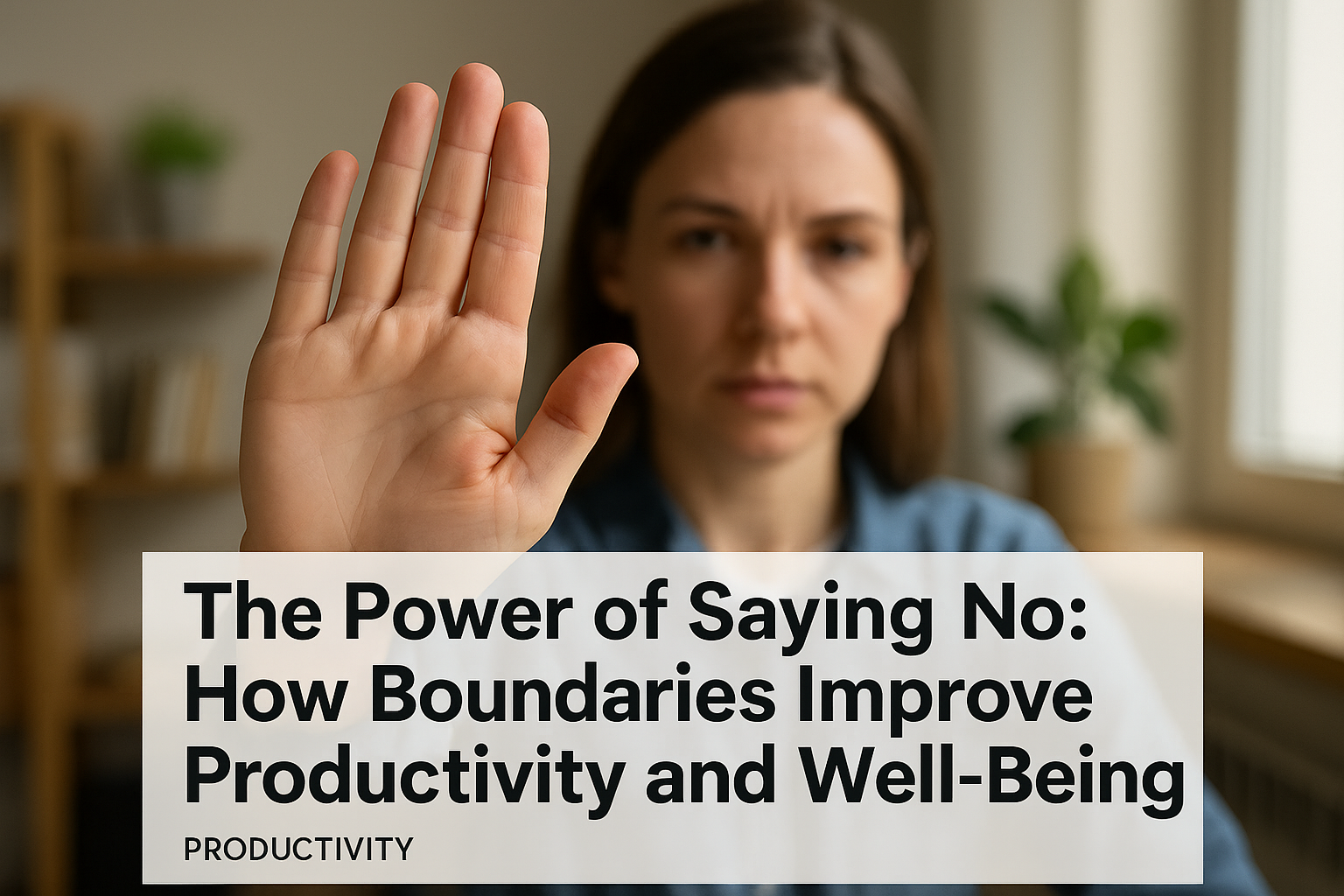Most people struggle with saying “no.” We don’t want to disappoint others. We feel guilty. We worry about missed opportunities. But constantly saying “yes” to everything leads to burnout, resentment, and distraction from your true priorities.
Learning to say “no” with clarity and confidence is one of the most empowering skills you can build—for your productivity, mental health, and personal growth.
In this article, you’ll learn why boundaries matter, and how to set them without guilt.
Why We Struggle to Say No
Saying “no” feels uncomfortable for several reasons:
- Fear of conflict or disapproval
- Desire to be liked or helpful
- Worry about damaging relationships
- Guilt around putting yourself first
- FOMO (fear of missing out)
But every “yes” to something unaligned is a “no” to your focus, energy, and values.
1. Recognize the Cost of Saying Yes to Everything
Saying yes out of obligation often leads to:
- Overcommitting and overwhelm
- Poor time and energy management
- Decline in work quality
- Loss of control over your schedule
- Stress and resentment
Before agreeing to anything, ask:
“What am I sacrificing if I say yes to this?”
2. Define Your Personal Boundaries
You can’t enforce boundaries you haven’t clarified.
Take 15 minutes to reflect:
- What drains your energy consistently?
- What kinds of requests do you regret saying yes to?
- When do you feel most overwhelmed or resentful?
Write down what you’re no longer available for—meetings, favors, time commitments, emotional labor, etc.
3. Practice Polite but Firm Responses
You can say “no” without being rude. Try phrases like:
- “Thanks for thinking of me, but I’m not available.”
- “I’m focusing on fewer commitments right now.”
- “I don’t have the bandwidth to take this on.”
- “Let me think about it and get back to you.” (Then follow up with a clear no.)
- “That’s not something I can prioritize right now.”
You don’t owe long explanations. Clear is kind.
4. Set Time Boundaries Around Work and Life
Protect your time like it’s your most valuable asset—because it is.
- Set office hours and stick to them
- Turn off notifications outside work hours
- Block off focus time on your calendar
- Create “non-negotiable” personal time (evenings, weekends, lunch breaks)
Respect your own boundaries first—others will follow.
5. Say No to Yourself, Too
Boundaries aren’t just external—they’re internal.
Examples:
- “I don’t check email before breakfast.”
- “I don’t scroll social media during work sessions.”
- “I stop working by 7 p.m.”
- “I don’t say yes to new projects until I finish current ones.”
Discipline is a form of self-respect.
6. Expect Discomfort—and Hold the Line
At first, saying no might feel awkward. People might push back. That doesn’t mean your boundary is wrong—it means it’s working.
Remind yourself:
- You’re not responsible for others’ emotions
- Boundaries protect relationships, not damage them
- You’re honoring your values and energy
The right people will respect your no.
Final Thought: Every No Is a Yes to Something Better
Saying no isn’t rejection—it’s redirection. It’s choosing quality over quantity. Depth over distraction. Alignment over approval.
So start today. Say no to one small thing that doesn’t serve you.
And watch what opens up in the space you reclaim.

